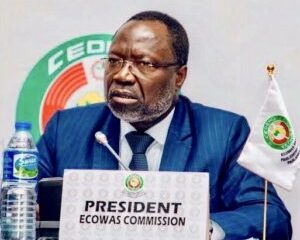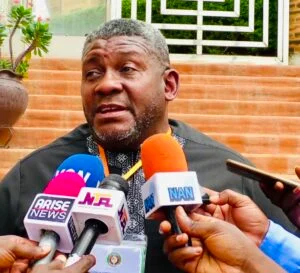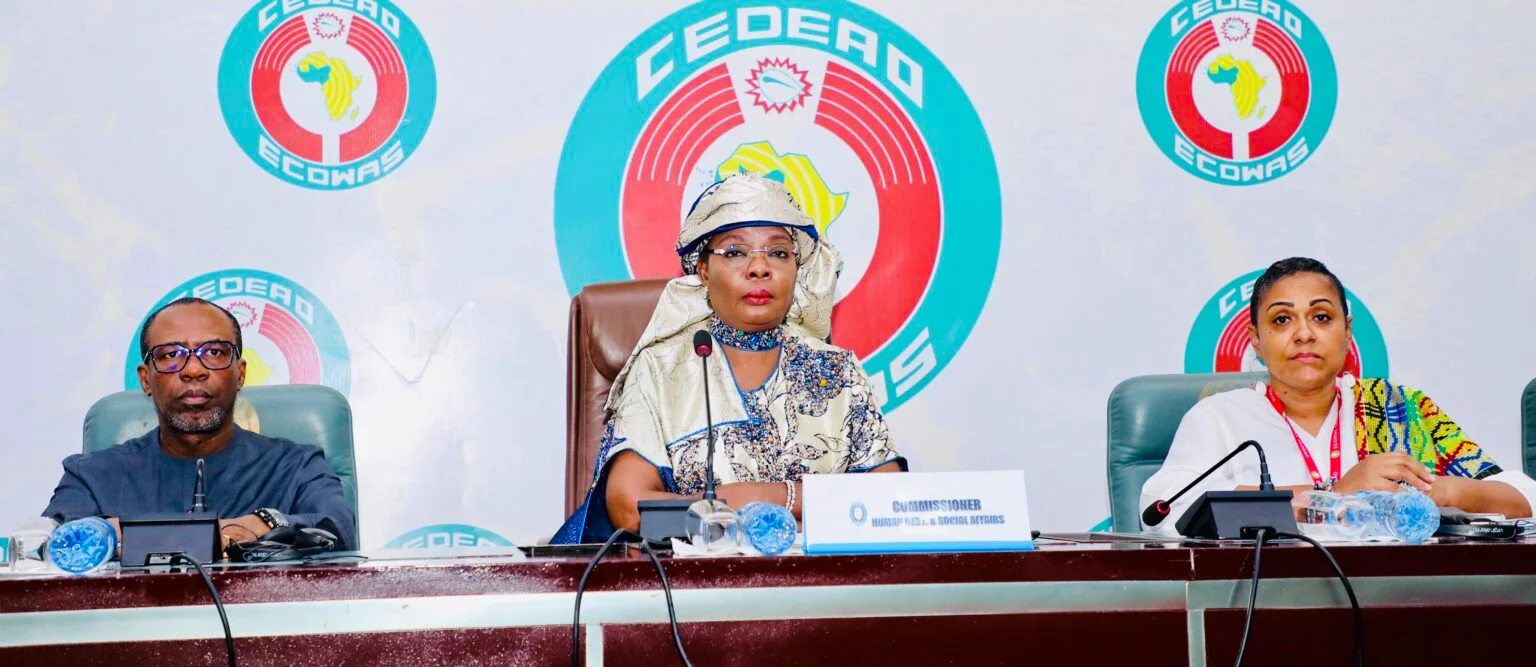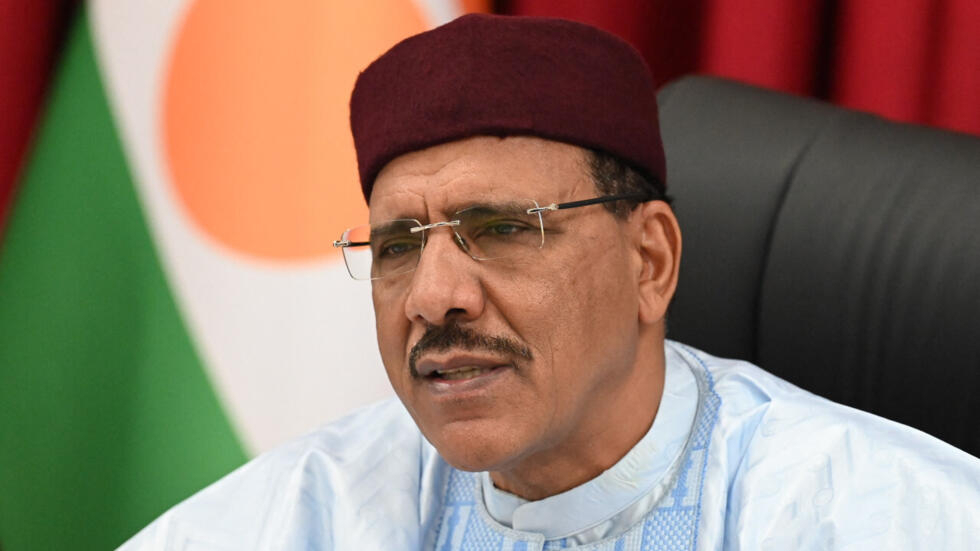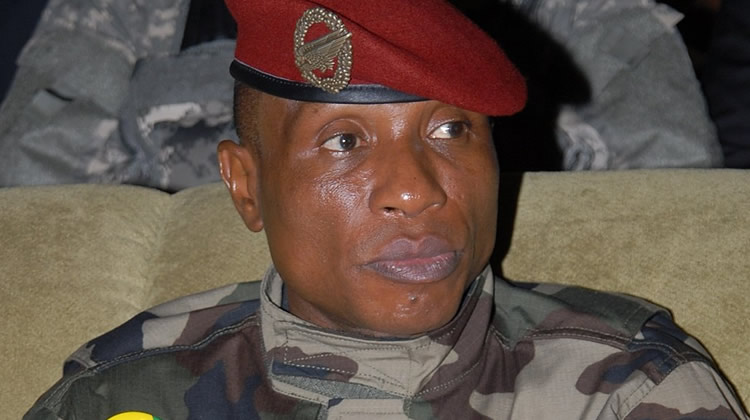Africa
ECOWAS maintains sanctions on Guinea, Mali
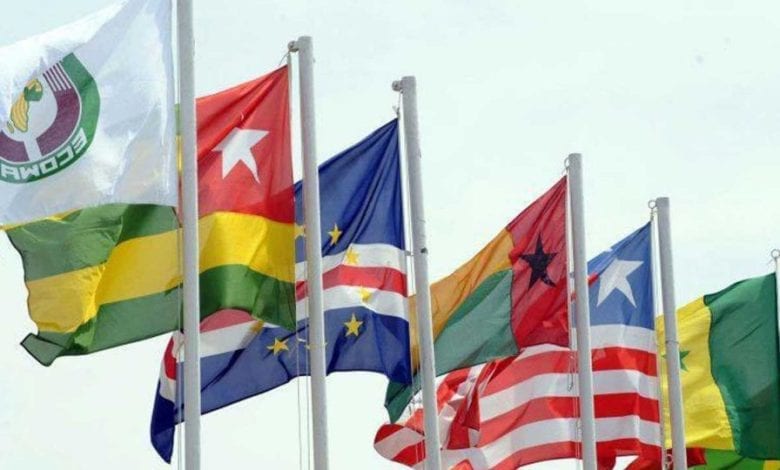
The Economic Community of West African States (ECOWAS) has resolved to maintain the sanctions imposed on Guinea and imposed similar ones against the Mali Transitional Government.
The resolution was part of the outcomes of the ECOWAS Extraordinary Summit of the Authority of Heads of State and Government held on Sunday in Accra, Ghana.
Laolu Akande, Senior Special Assistant to the President on Media and Publicity, Office of the Vice President, in a statement on Monday in Abuja, said the summit was to review the political situations in Guinea and Mali.
He said that a communique was issued at the end of the 3rd Extraordinary Summit on Guinea and Mali attended by Vice President Yemi Osinbajo, who represented President Muhammadu Buhari.
“The authority decides to uphold the suspension of the Republic of Guinea from all ECOWAS governing bodies as well as the travel ban and freeze on financial assets imposed on the members of the CNRD and their family members until constitutional order is restored.
Regarding Mali, the ECOWAS leaders held a meeting presided over by President Nana Addo Akufo-Addo of Ghana and Chair of the ECOWAS Authority.
“They resolved that in conformity with the decision taken on Sept.16, the authority decides to impose sanctions with immediate effect against individuals and groups who have been identified, including the entire transition authorities and the other transition institutions.
“These sanctions will also be imposed on the members of their families.
“The sanctions include a travel ban and a freeze on their financial assets.
” It further instructs the president of the commission to consider and propose additional sanctions at its next Ordinary Session on Dec. 12, should the situation persist.”
The ECOWAS Summit attended by leaders from 13 countries, called on the African Union, the United Nations, and the bilateral and other multilateral partners to endorse and support the implementation of the sanctions.
Speaking to newsmen at the end of the summit, Osinbajo said that African countries had gone far beyond military coups as a means of changing political actors and that coups were unacceptable.
He said that ECOWAS Heads of State and Government would continue to prevail on the military juntas in Guinea and Mali to return their countries to democratic rule.
“One of the important points that the ECOWAS Heads of State and Government make is that coups and coups de’tat generally are just completely unacceptable
“And that we cannot continue to have a situation where they are tolerated for the simple reason that in Africa, West Africa in particular, we have gone way beyond military coups as an answer to the question of a change in political actors.
“There is a very strong feeling amongst the heads of state that we must insist, that other international bodies: the UN, EU, and other regional groups must support the impositions of sanctions on individuals and groups that choose not to follow the democratic process of change of government and choose to go by way of coup de tat,” he said.
He said it appeared from all indications that much progress had been made in Guinea, although there were still concerns that there ought to be much more clarity on transition.
Osinbajo said Mali was a much more difficult situation.
He said there was much concern because very little progress had been made.
Akufo-Addo had earlier briefed the meeting on the outcome of a high-powered delegation led by himself to Guinea and Mali on Sept. 17 and Oct. 17 respectively, as part of the resolutions of the previous Summit held on Sept. 16.
The Authority reaffirmed its adherence to all the ECOWAS normative frameworks, particularly the ECOWAS Supplementary Protocol on Democracy and Good Governance.
Aside Akufo-Addo and Osinbajo, the summit was attended by four other presidents from Ivory Coast, Senegal, Niger and Guinea-Bissau
Also represented in an official capacity were Benin Republic, Burkina Faso, The Gambia, Liberia and Togo, Sierra Leone and Cape Verde.
The session was also attended by Dr Goodluck Jonathan, former President of the Federal Republic of Nigeria and ECOWAS Mediator for Mali.
Others were Mr Jean-Claude Kassi-Brou, President of the ECOWAS Commission and Mr Mahamat Annadif and the Special Representative of the UN Secretary-General for West Africa and the Sahel (UNOWAS).
Mr El-Ghassim Wane, Head of Multidimensional Integrated Stabilisation Mission in Mali (MINUSMA) and Mr Maman Sidikou, Special Representative for MISAHEL, representing the President of the African Union Commission were also in attendance.
The vice president was accompanied to the summit by the Minister of State for Foreign Affairs, Amb. Zubairu Dada, Nigeria’s High Commissioner to Ghana, Vice Admiral Ibok Ekwe-Ibas (retired) and the Special Adviser to the President on Economic Matters, Dr Adeyemi Dipeolu. (NAN)
Africa
When the Gatekeeper Fumbles: JAMB’s Error and the Future of Our Youth

When the Gatekeeper Fumbles: JAMB’s Error and the Future of Our Youth
By Matthew Eloyi
It is not every day that a public official publicly sheds tears. And so, when the Registrar of the Joint Admissions and Matriculation Board (JAMB), Professor Ishaq Oloyede, broke down while admitting to errors in the conduct of the 2025 Unified Tertiary Matriculation Examination (UTME), it was a deeply emotional moment. But make no mistake: while the tears may have reflected remorse, they cannot wash away the consequences of what is, quite frankly, a systemic failure.
Let us be clear — JAMB is not merely an examination body. It is a gatekeeper to higher education in Nigeria. It is the bridge between dreams and their realisation for millions of young Nigerians. To fumble that responsibility is not a technical error; it is a breach of trust with life-altering consequences.
With nearly 380,000 candidates now required to retake the exam due to technical glitches and irregularities, one cannot help but ask: How did we get here? And more importantly, why does this keep happening?
For years, JAMB has marketed its transition to computer-based testing as a step toward modernisation. Yet each year seems to expose new cracks in its implementation — from faulty computer systems and power outages to incomplete biometric verification and poorly configured questions. These are not unforeseeable anomalies. They are predictable outcomes of poor planning, lack of oversight, and inadequate investment in infrastructure.
Imagine the psychological toll on the students, many of whom studied day and night, only to be met with malfunctioning systems and flawed questions. Some walked out of examination halls in tears, their confidence shattered, their futures placed in limbo. For those in remote or under-resourced areas, the technical errors are compounded by infrastructural and economic disadvantages. What we are witnessing is not just an exam failure; it is an institutional failure that amplifies inequality.
JAMB’s decision to allow affected candidates a resit is necessary, but it is insufficient. What about those who may never realize they were victims of the glitch? What about those whose faith in the process has been irreparably broken?
Professor Oloyede’s tears may have been sincere, but what Nigerian students need now is not emotion — it is accountability. Heads must roll, systems must be overhauled, and the entire structure must be audited. We cannot allow a body that plays such a pivotal role in shaping the nation’s intellectual future to operate with such recklessness.
The UTME is a rite of passage for Nigerian students; it should not become a roulette of misfortune. Until JAMB can guarantee a glitch-free, fair, and standardised assessment, its credibility will remain on shaky ground.
In the end, our children deserve better. They deserve an education system that works; not one that breaks down and apologises after the damage is done.
Africa
ECOWAS Confirms Burkina Faso, Mali, Niger’s Exit, Keeps Doors Open for Return

The Economic Community of West African States (ECOWAS) has confirmed that the withdrawal of Burkina Faso, Mali, and Niger from the regional bloc takes effect from January 29, 2025.
ECOWAS spokesperson Joel Ahofodji, in a statement on Wednesday, said the decision aligns with the ECOWAS authority’s resolution and reflects the spirit of regional solidarity and the interests of the people.
Despite their exit, Ahofodji emphasized that the bloc remains open to the return of the three Sahel nations whenever they choose.
“All relevant authorities within and outside ECOWAS Member States should take note of this development,” he said.
To minimize disruptions, ECOWAS urged the continued recognition of national passports and identity cards bearing the ECOWAS logo held by citizens of Burkina Faso, Mali, and Niger until further notice.
Additionally, the commission called for the continued application of the ECOWAS Trade Liberalisation Scheme (ETLS) and investment policies for goods and services from the departing nations. It also stressed that their citizens should retain the right to visa-free movement, residence, and establishment under existing ECOWAS protocols.
Furthermore, ECOWAS requested full support and cooperation for its officials from the three countries as they continue their assignments.
“These arrangements will be in place until the full determination of the modalities of our future engagement with the three countries by the ECOWAS Authority of Heads of State and Government,” Ahofodji stated.
He revealed that ECOWAS has set up a structure to facilitate discussions on these modalities, ensuring a smooth transition.
“This message is necessary to avoid confusion and disruption in the lives and businesses of our people during this transition period,” he added.
The News Agency of Nigeria (NAN) reports that Burkina Faso, Mali, and Niger initially announced their intention to leave ECOWAS on January 29, 2024, in accordance with the bloc’s protocol, which allows for a 12-month notice period. In December 2024, ECOWAS officially acknowledged their right to exit but reiterated its willingness to welcome them back in the future.
Africa
Customs hands over illicit drugs worth N117.59m to NDLEA

The Nigeria Customs Service (NCS), Ogun Area 1 Command, has handed over illicit drugs worth N117.59 million to the National Drug Law Enforcement Agency (NDLEA).
The Comptroller of the command, Mr James Ojo, disclosed this during the handing over of the drugs to Mr Olusegun Adeyeye, the Commander of NDLEA, Idiroko Special Area Command, in Abeokuta, Ogun, on Friday.
Ojo said the customs handed over the seized cannabis and tramadol tablets to the Idiroko Special Command for further investigation in line with the standard operating procedures and inter-agency collaboration.
He said the illicit drugs were seized in various strategic locations between January and November 21, 2024, in Ogun State.
He added that the illicit drugs were abandoned at various locations, including the Abeokuta axis, the Agbawo/Igankoto area of Yewa North Local Government Area, and Imeko Afton axis.
Ojo said that the seizure of the cannabis sativa and tramaling tablets, another brand of tramadol, was made possible through credible intelligence and strategic operations of the customs personnel.
“The successful interception of these dangerous substances would not have been possible without the robust collaboration and support from our intelligence units, local informants and sister agencies.
“These landmark operations are testament to the unwavering dedication of the NCS to safeguard the health and well-being of our citizens and uphold the rule of law,” he said.
He said the seizures comprised 403 sacks and 6,504 parcels, weighing 7,217.7 kg and 362 packs of tramaling tablets of 225mg each, with a total Duty Paid Value of N117,587,405,00.
He described the height of illicit drugs smuggling in the recent time as worrisome.
This, he said, underscores the severity of drug trafficking within the borders.
“Between Oct. 13 and Nov. 12 alone, operatives intercepted a total of 1,373 parcels of cannabis sativa, weighing 1,337kg and 362 packs of tramaling tablets of 225mg each,” he said.
Ojo said the seizures had disrupted the supply chain of illicit drugs, thereby mitigating the risks those substances posed to the youth, families and communities.
He lauded the synergy between its command, security agencies and other stakeholders that led to the remarkable achievements.
Ojo also commended the Comptroller General of NCS for creating an enabling environment for the command to achieve the success.
Responding, Adeyeye, applauded the customs for achieving the feat.
Adeyeye pledged to continue to collaborate with the customs to fight against illicit trade and drug trafficking in the state.
-

 Headlines3 years ago
Headlines3 years agoFacebook, Instagram Temporarily Allow Posts on Ukraine War Calling for Violence Against Invading Russians or Putin’s Death
-

 Headlines3 years ago
Headlines3 years agoNigeria, Other West African Countries Facing Worst Food Crisis in 10 Years, Aid Groups Say
-

 Foreign3 years ago
Foreign3 years agoNew York Consulate installs machines for 10-year passport
-

 News11 months ago
News11 months agoZero Trust Architecture in a Remote World: Securing the New Normal
-

 Entertainment3 years ago
Entertainment3 years agoPhyna emerges winner of Big Brother Naija Season 7
-

 Headlines1 year ago
Headlines1 year agoNigeria Customs modernisation project to check extortion of traders
-

 Economy1 year ago
Economy1 year agoWe generated N30.2 bn revenue in three months – Kano NCS Comptroller
-
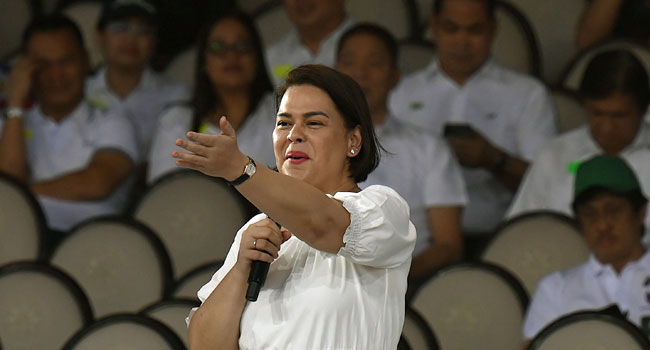
 Headlines1 year ago
Headlines1 year agoPhilippines’ Vice President Sara Duterte resigns from Cabinet




